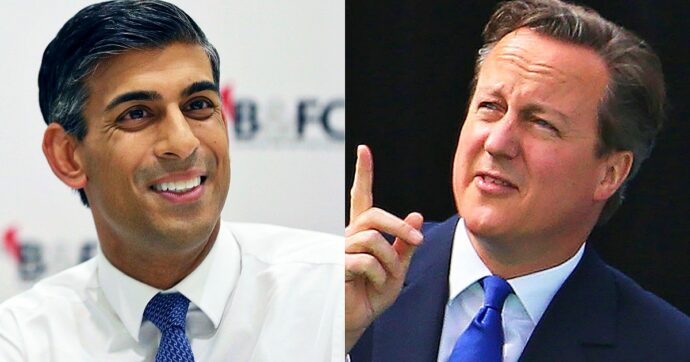Former British Prime Minister David Cameron made an unexpected return to high office on Monday, becoming foreign secretary in a major shakeup of the Conservative government that also saw the firing of divisive Home Secretary Suella Braverman.
Cameron, who led the U.K. government between 2010 and 2016 and triggered the country’s exit from the European Union, was appointed by Prime Minister Rishi Sunak in a Cabinet shuffle in which he sacked Braverman, a law-and-order hardliner who drew anger for accusing police of being too lenient with pro-Palestinian protesters.
She was replaced by James Cleverly, who had been foreign secretary. Sunak was making further changes to the government throughout the day, with Environment Secretary Therese Coffey saying she would be leaving her job.
The bold changes are an attempt by Sunak to reset his faltering government. The Conservatives have been in power for 13 years, but opinion polls for months have put them 15 to 20 points behind the opposition Labour Party amid a stagnating economy, persistently high inflation, an overstretched health care system and a wave of public sector strikes.
Cameron’s appointment came as a surprise to seasoned politics-watchers. It’s rare for a non-lawmaker to take a senior government post, and it has been decades since a former prime minister held a Cabinet job.
The government said Cameron had been appointed to Parliament’s unelected upper chamber, the House of Lords. The last foreign secretary to serve in the Lords, rather than the elected House of Commons, was Peter Carrington, who was part of Prime Minister Margaret Thatcher’s government in the 1980s.
Cameron, 57, said Britain was “facing a daunting set of international challenges, including the war in Ukraine and the crisis in the Middle East.”
“While I have been out of front-line politics for the last seven years, I hope that my experience — as Conservative leader for 11 years and prime minister for six — will assist me in helping the prime minister to meet these vital challenges,” he said in a statement.
Cameron’s foreign policy legacy is mixed. As prime minister he backed NATO-led military intervention in Libya in 2011 that toppled Moammar Gadhafi and deepened that country’s chaos. In 2013, he tried and failed to gain Parliament’s backing for U.K. airstrikes against President Bashar al-Assad’s forces in Syria. He also announced a short-lived “golden era” in U.K.-China relations, shortly before that relationship soured.
And he will be forever remembered as the unwitting author of Brexit, a rupture that roiled Britain’s politics, economy and place in the world. Cameron called a 2016 EU membership referendum, confident the country would vote to stay in the bloc. He resigned the day after voters opted to leave. AP
 Sunak and Cameron
Sunak and Cameron
